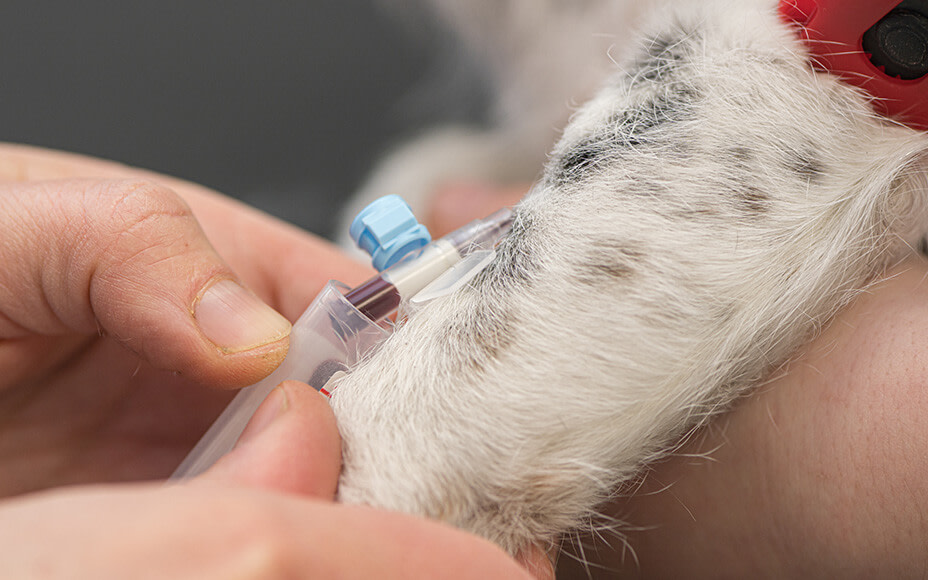Do you want to navigate the jungle of laboratory values and abbreviations? Learn more about common reasons why alkaline phosphatase may be altered.
Common Reasons for Elevated Alkaline Phosphatase in Dogs
Blood tests for our furry friends are an essential part of preventive check-ups and diagnostic measures. As a dog owner, it’s not easy to keep track of all the values. In this article, discover what alkaline phosphatase (AP or ALP in dogs) is and what changes in its levels might indicate.
What is Alkaline Phosphatase?
Alkaline phosphatase is an enzyme present in many organs such as the liver, bones, kidneys, intestines, and placenta. Altered enzyme levels in the blood can indicate various diseases. In laboratory results, the enzyme is often abbreviated as “AP.”
The normal values of alkaline phosphatase vary depending on the determination method. It is best to refer to the reference range provided by the laboratory.

What do Changes in Alkaline Phosphatase Mean?
Since alkaline phosphatase occurs in several organs, its value in the blood can deviate from the norm due to various diseases. When there is a deviation, alkaline phosphatase in dogs is usually elevated, meaning it is too high in most cases.
As a dog owner, you may often hear about this enzyme in connection with liver diseases because alkaline phosphatase is one of the so-called liver enzymes.
In addition to liver diseases, the following reasons are often responsible for altered AP values:
Cholestasis (Bile Stasis):
Cholestasis refers to bile stasis. Normally, bile is produced by liver cells and enters the small intestine. A portion of bile is stored in the gallbladder. When there is bile stasis, more alkaline phosphatase is produced, leading to an increase in its blood levels.
Steroids:
Steroids, especially cortisol used to treat certain diseases, lead to increased production of alkaline phosphatase, which is detectable in the blood. Conditions such as Cushing’s syndrome, characterized by an increase in cortisol, can also result in elevated alkaline phosphatase.
Bone Changes:
In young dogs, elevated AP values are normal to a certain extent due to growth and are not a cause for concern. Puppies also have different nutritional requirements than adult dogs and therefore need specialized puppy food.
However, if alkaline phosphatase is elevated in adult dogs, it may indicate a bone fracture, osteomyelitis, or a bone tumor.

Other possible causes of elevated alkaline phosphatase:
- Diabetes Mellitus
- Hypothyroidism
- Pancreatitis
- Administration of phenobarbital for epilepsy treatment
For the interpretation of an altered laboratory value, it is always important to assess the entire laboratory result along with the clinical examination of your dog and, if necessary, additional tests.
Trust your veterinarian in evaluating blood tests and ask for a detailed explanation. Together, you will find the best solution for your furry friend.
Lowering Alkaline Phosphatase in Dogs
If your dog has an elevated AP level, there is no direct remedy to lower it – and it’s not always necessary. The key here is the trend. Regular examinations and monitoring of liver values are sufficient for the time being. If there is an underlying disease, it is essential to identify the correct cause rather than targeting individual symptoms or values. It is crucial to assess the overall liver function, and further steps can be taken once a diagnosis is made by veterinarians and therapy is recommended.


